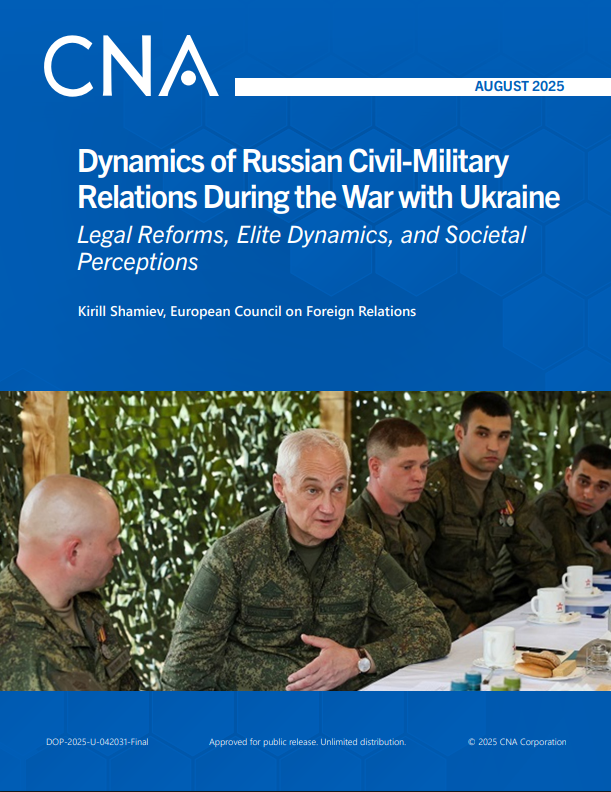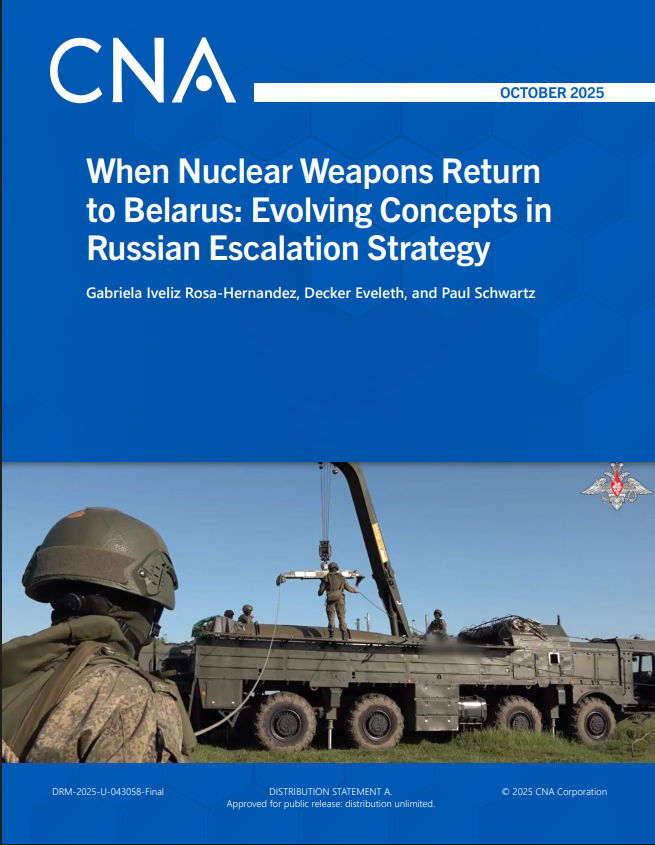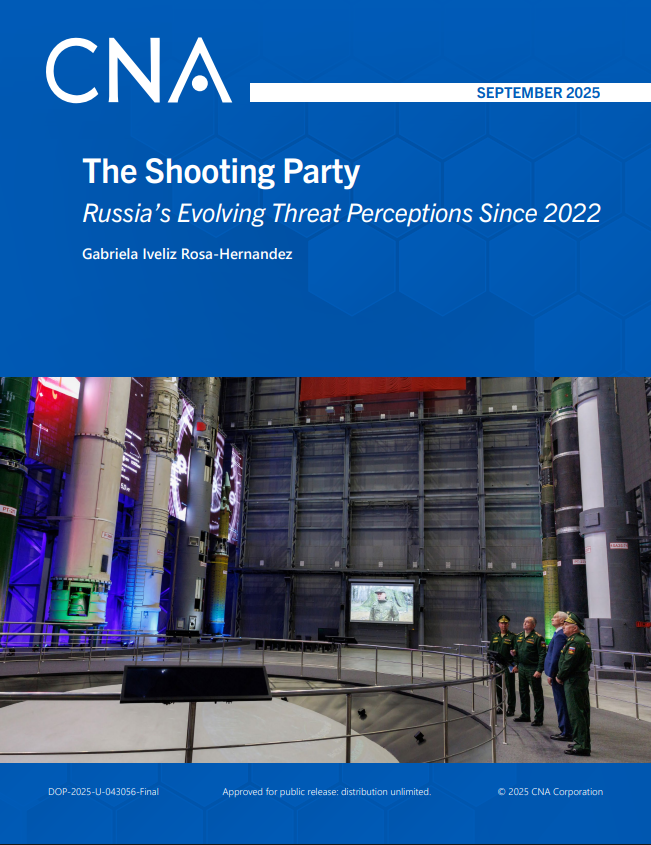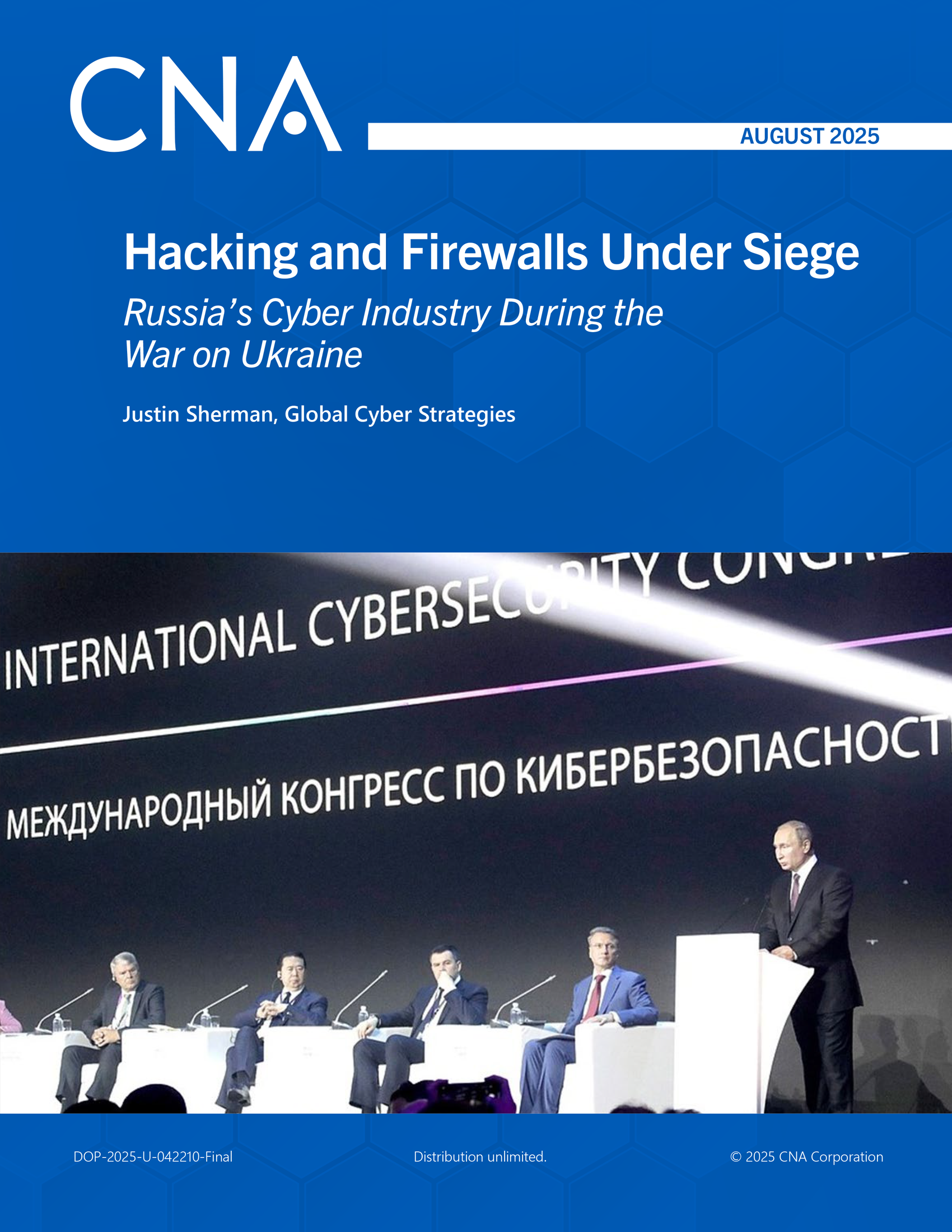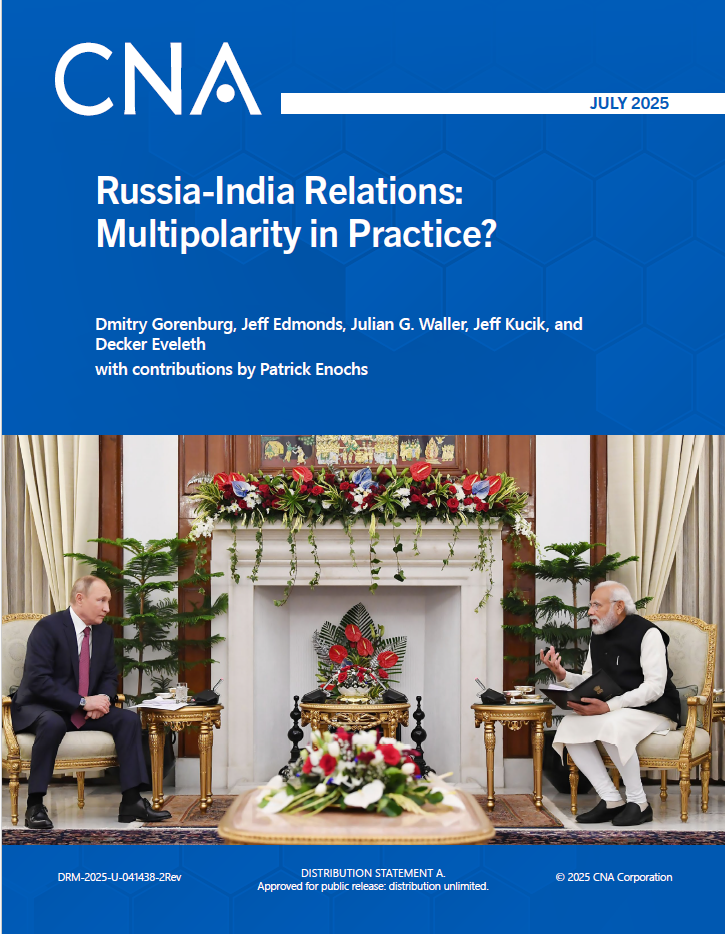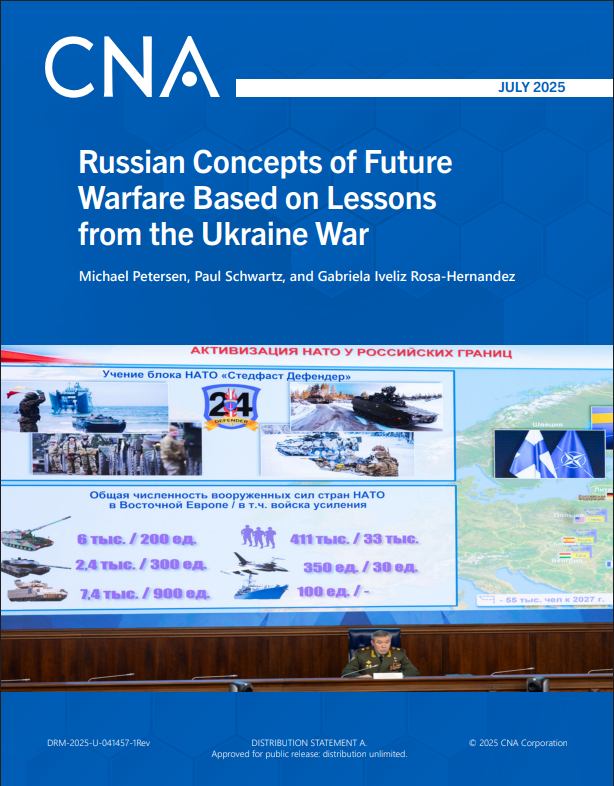Executive Summary
This report continues CNA’s study on Russian wartime civil-military relations. It complements the previous work by suggesting an alternative analytical approach that traces how legal, institutional, elite, and societal changes have influenced Russian civil-military relations. The report conceptualizes civil-military relations as a dynamic process of interaction among the military, the presidency, and civilian actors, one in which the outcomes of these interactions reshape the distribution of power within the Russian political system.
The report demonstrates how the Kremlin has managed to keep Russian civil-military relations under control. These efforts enabled Russian President Vladimir Putin to navigate two major crises: (1) early battlefield setbacks and the subsequent partial mobilization and (2) the armed rebellion led by PMC Wagner. The presidential coalition preventatively adopted large-scale legal and censorship measures intended to demobilize the civilian opposition to the invasion. At the same time, the Kremlin expanded welfare benefits for warfighters and military-industrial complex staff to ensure that they follow wartime policies. However, the welfare expansion met resistance in the Duma when civilian actors tried to take over this agenda from the Kremlin. Following the PMC Wagner rebellion, the Kremlin removed dozens of high-level MOD officials to fight corruption and improve military effectiveness. In addition, a small, patriotic segment of civil society mobilized to donate equipment and raise funding for forces deployed in Ukraine, both of which significantly helped the military. As of April 2025, Russia’s civil-military system appears stable and resilient. However, a major contraction in available financial resources could disrupt this balance by limiting the state’s capacity to meet the military’s demands and appease the social and elite groups, whose loyalty is contingent on material benefits and the belief in a victorious war outcome.
The Russian case serves as a cautionary example for states engaging in high-stakes conflicts, demonstrating the importance of a comprehensive, system-wide approach to ensuring military subordination, elite cohesion, and civilian support for the war. As European states reassess defense planning with reduced or potentially absent US military support and discuss potential military deployment in Ukraine, understanding national civil-military relations becomes increasingly relevant for both scholars and policy-makers. Understanding civil-military relations helps ensure that forces in the field have stable political and economic support at home.
Download reportApproved for public release. Unlimited distribution.
Details
- Pages: 32
- Document Number: DOP-2025-U-042031-Final
- Publication Date: 8/5/2025
